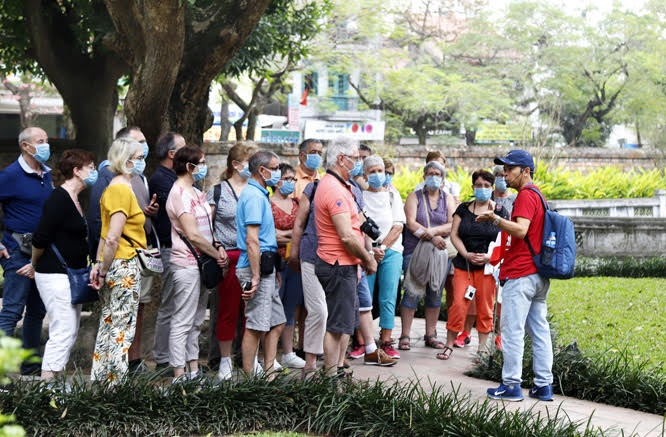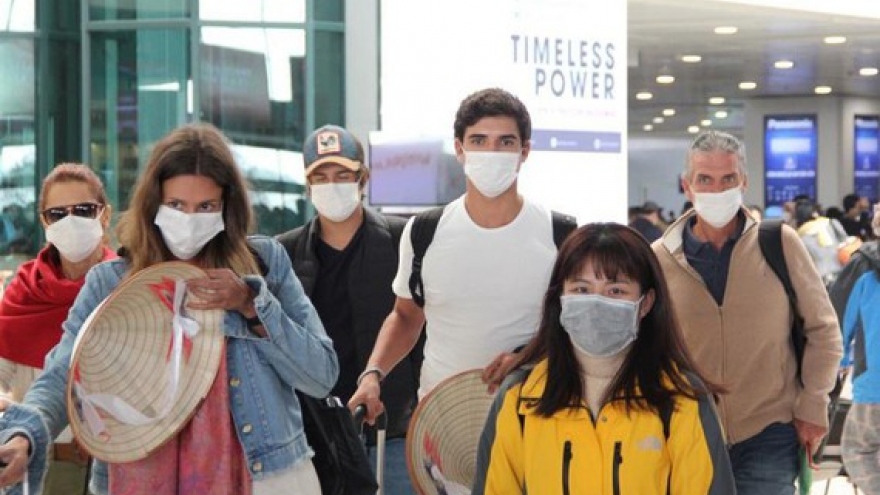Vietnam to welcome back foreign travelers under right conditions
VOV.VN - Amid increasing concerns about losing out to foreign rivals, the Vietnamese tourism industry is in the process of devising ways in which to welcome back foreign travelers, providing that they enter the country with a vaccine passport.

Local travel agencies have been struggling to survive the three waves of the novel coronavirus Vietnam has endured since last year. The country has almost received no foreign travelers, except for foreign experts, after it moved to shut borders last April. Although the domestic tourism market has already enjoyed a partial recovery, it is unlikely to offset the losses suffered due to the lack of tourists from abroad.
As a number of countries, such as Thailand and Singapore, look to welcome back international visitors on the condition that they have a vaccine passport, there could be a chance for the Vietnamese tourism industry to follow suit and move past the damage done by the COVID-19 crisis. As such the industry has been advised to take advantage of this chance and revitalise its market.
“It’s time now to get down to work on this idea,” says Vu The Binh, vice president of the Vietnam Tourism Association (VITA).
Thailand recently announced plans to open its borders for foreign travelers in a number of its key tourist destinations, providing that arrivals show their vaccine passport. Similarly, Singapore has also accepted foreign visitors on the condition they have an immunity health passport.
“We will be left behind if we run after regional countries in receiving back foreign travelers,” says Binh, adding that the VITA is drafting a scheme aimed at welcoming the return of foreign visitors.
If the scheme gets approval from the Government, Binh believes it will be carried out at an appropriate time on a pilot basis launched by the VITA.
The Vietnam National Administration of Tourism is currently considering reopening borders for foreign tourists on a conditional basis, with priority given to safety. Several health experts have even claimed that a vaccine passport cannot completely protect the recipient from virus infection, especially when factors such as the efficiency of the vaccine and mutations of the virus are considered.
According to Hoang Nhan Chinh, an official of the Vietnam Tourism Advisory Board (TAB), many countries will only accept tourists who have been vaccinated against COVID-19 for at least 28 days and will also require a negative COVID-19 test three day before departure.
In searching for the most effective solution, Chinh suggests that Vietnam form a group or an organisation that is comprised of experts across all fields, such as health, diplomacy, police, defence, culture, and tourism in order to discuss the criteria for welcoming the return of international tourists.
Using Singapore as an example, Chinh says they have classified foreign travelers into three categories, with those travelling from Vietnam set to be given top priority.
The move will see travelers placed into quarantine for just one or two days upon arrival as opposed to the normal time of 14 days, and all visitors are required to have a quick COVID-19 test. They will be accepted providing the test turns out to be negative, or they will be forced to return to Vietnam and pay for the quick test if it is positive.
“Vietnam should learn from Singapore’s experience in reopening its borders for vaccinated travelers,” suggests Chinh.
With the latest COVID-19 outbreak which recurred in late January being brought under control nationwide, only Hai Duong, a locality in the north, is now sporadically recording cases. Indeed, the number of infections has now fallen to a few per day compared to dozens which were recorded a couple of weeks ago.

